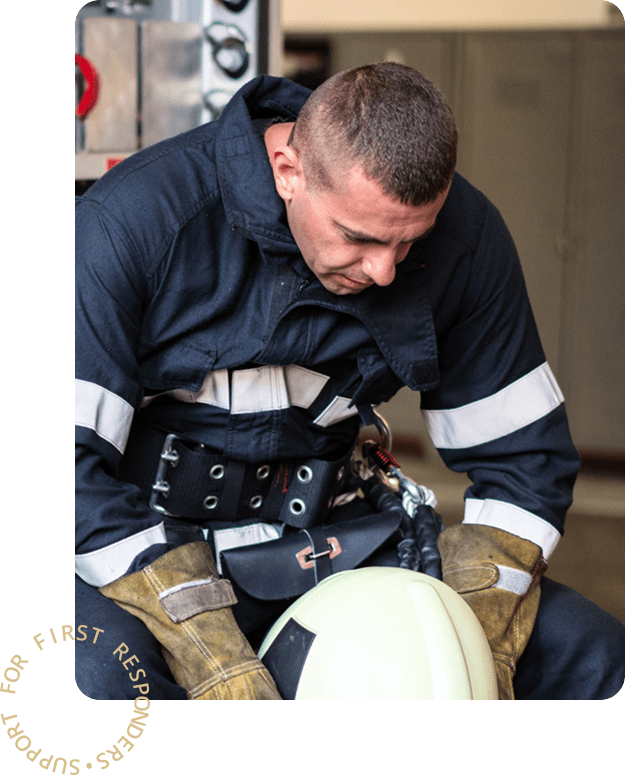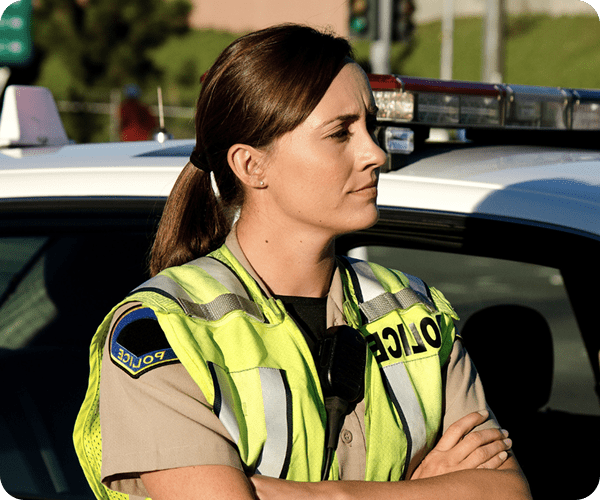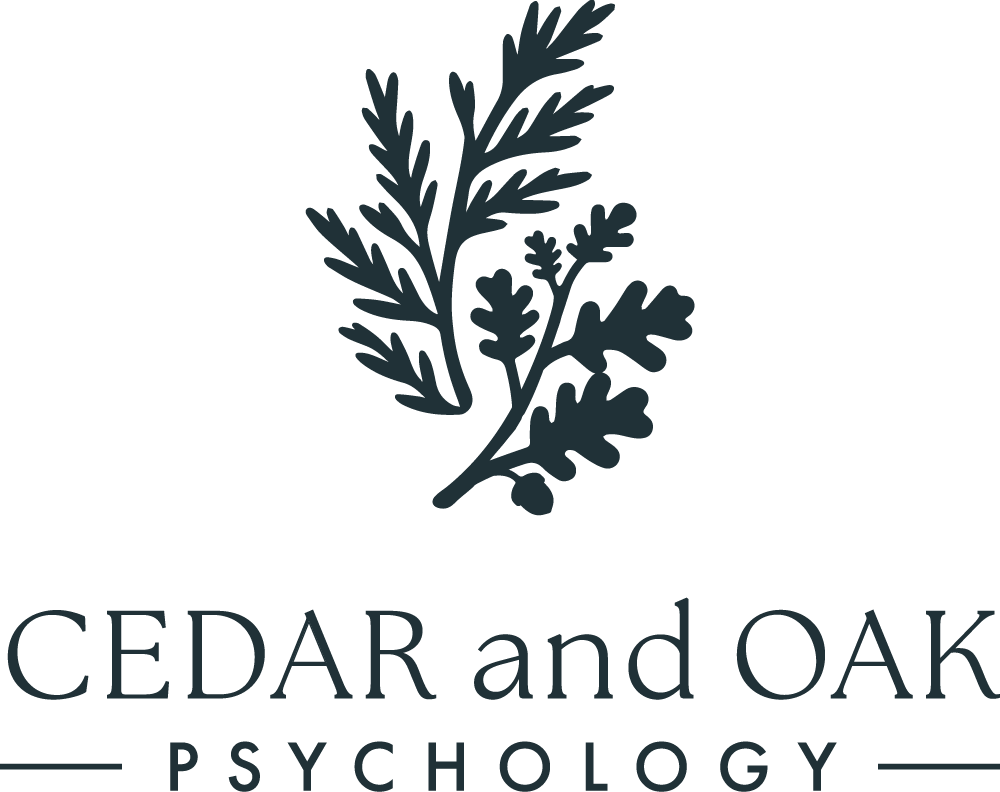
Therapy
Specialized Support for First Responders & Their Families

Supporting Those Who Answer the Call
We understand the unique pressures faced by police officers, firefighters, EMTs, paramedics, dispatchers, and their families. Our specialized approach recognizes the psychological demands of emergency service work and provides the support you need to thrive both on and off duty.
Trauma & Critical Incident Stress
Repeated exposure to traumatic events can take a toll. We provide specialized treatment for acute stress reactions, PTSD, and cumulative stress from years of emergency response work.
Shift Work & Sleep Disorders
Irregular schedules and high-stress situations disrupt natural sleep patterns. We help restore healthy sleep and develop strategies for managing the physical and mental effects of shift work.
Hypervigilance & Difficulty "Switching Off"
Staying alert and ready for danger is essential on the job but can be exhausting in personal life. We help you learn to decompress and transition between work and home modes.
Family Relationship Strain
The demands of first responder work affect entire families. We work with couples and families to improve communication, manage stress, and strengthen relationships despite the challenges of the job.
Substance Use & Coping
We provide confidential support for substance use concerns, understanding the unique stressors that lead first responders to seek relief through alcohol or other substances.
Organizational Stress & Burnout
Department politics, budget constraints, and administrative pressures add to job stress. We help you navigate organizational challenges while maintaining your passion for service.
Retirement & Career Transition
Leaving a career in emergency services involves unique identity and purpose challenges. We support first responders through retirement planning and career transitions.
Secondary Trauma for Families
Spouses and children of first responders can experience their own trauma from worry, exposure to work stories, and the stress of loving someone in a dangerous profession.

Our First Responder-Informed Approach
We combine clinical expertise with deep understanding of first responder culture, providing practical, evidence-based care that respects your dedication to service.
Emergency Services Expertise
We understand the culture, stressors, and unique challenges of police, fire, EMS, and dispatch work.
Family-Centered Support
Addressing the impact on spouses, children, and extended family members who also serve in their own way.
Evidence-Based Treatment
Utilizing proven therapies including EMDR, CBT, and critical incident stress management techniques.
Complete Confidentiality
Your privacy is protected - our services are completely separate from your department and won't affect your career.

You've Dedicated Your Life to Protecting Others
Now let us help protect your mental health and well-being. You deserve the same level of professional support that you provide to your community every day.

For Active First Responders
"Will my department find out I'm seeking help?"
"Could this affect my fitness for duty evaluations or career advancement?"
"Am I supposed to be tough enough to handle this on my own?"
"Will a therapist who hasn't been in law enforcement/fire/EMS really understand what I deal with?"
"Is it normal to be this affected by calls, or am I just not cut out for this job?"
"What if talking about traumatic calls makes me more emotional on the job?"
"Will my partner or crew think I'm weak if I go to therapy?"

For Veteran First Responders
"After all these years, shouldn't I be used to this by now?"
"Is what I'm experiencing normal after decades of this work?"
"Will therapy help, or is the damage already done?"
"How do I separate who I am from what I've done for 20+ years?"
"Is it worth getting help when I'm close to retirement anyway?"

For First Responder Spouses and Partners
"Am I allowed to complain when my partner is the one dealing with life and death situations?"
"Is it normal to worry this much every time they leave for work?"
"How do I support them without becoming their therapist?"
"Why do I feel like I'm competing with their job for their attention?"
"Should I be able to handle the stress of being married to a first responder better than this?"
"Is couples therapy worth it when their job will always come first?"

For First Responder Children
"Why is my parent always on edge at home?"
"Is it normal to worry about my parent not coming home?"
"Why do other families seem to have more normal schedules and traditions?"
"Should I follow in their footsteps, or is this too hard on families?"

Common Universal Concerns
"What if I start therapy and can't handle doing my job anymore?"
"Will talking about the worst calls I've been on make my nightmares worse?"
"How do I know if I have PTSD or if I'm just having a rough patch?"
"Is my drinking/substance use actually a problem, or just how I cope?"
"What's the difference between normal job stress and something that needs professional help?"
"Can therapy really help with hypervigilance and always being 'on'?"
"Will my family understand why I need to do this?"
For General Inquiries, please fill out the form >
For General Inquiries, please fill out the form
If you already know the clinician you would like to connect with, then you can contact directly by clicking below.
Contact Us
Find out more about our services
Please do not communicate any private information to us via this website. Please be aware that your message can be accessed by unauthorized third parties and can compromise the privacy and confidentiality of your communication.
If you already know the clinician you would like to connect with, then you can contact directly by clicking below.
Licensed Providers
Hannah K. Howell, PhD, JD, MSCP
[CA PSY17487 / WA PY 61076404]
[PSYPact/APIT 20176]
Alison Bateman, PhD, C-DBT
[CA PSY19916]
Paula Wilbourne, PhD
[HI PSY-1029]

We provide personalized therapy, advanced professional training, and expert consultation, leveraging decades of clinical expertise and research to address complex mental health challenges.
Licensed Provider
Hannah K. Howell, PhD, JD, MSCP [CA PSY17487 / WA PY 61076404] [PSYPact/APIT 20176]
Alison Bateman, PhD [CA PSY19916]
Paula Wilbourne, PhD [HI PSY-1029]
©2025 by Cedar and Oak Psychology | Privacy Policy | Terms & Conditions
